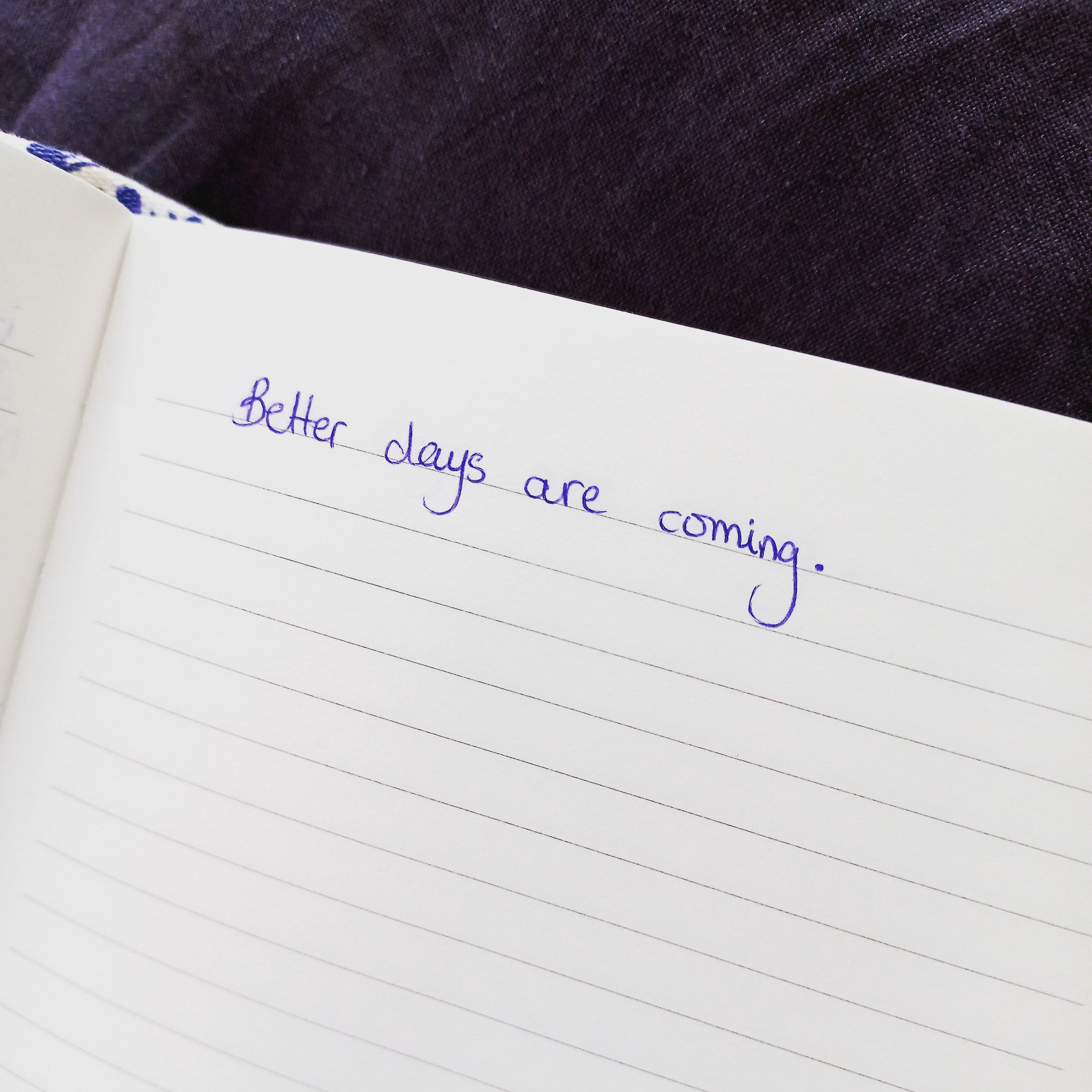In my very first post, I shared that I’m still on a journey when it comes to my eating disorder recovery and learning more about my mental health. A habit that has really helped me is journaling.
Getting into journaling
I tried the Dear Diary thing as a teenager, but I couldn’t get into it. What was I supposed to tell this book of empty pages with pre-printed dates? About my day? About my feelings?
I couldn’t concentrate long enough to write anything I felt was “good”, so I didn’t do it at all.
It wasn’t until a few years ago when I realized that there are no rules for journaling that it stuck. I found it helped me empty my brain of thoughts and relax. I could use words to scream out my frustrations to empty pages – which in most cases was better than screaming at the people around me. And I didn’t have to worry about whether I displayed “enough” emotion or overshared.
Recently, journaling has taken on new meaning after starting cognitive behavioral therapy (CBT) as part of managing my ADHD. Journaling documents events, thoughts, and feelings that CBT can help unpack by interrupting the negative self-talk patterns behind them. So while it was a discipline I already had, journaling in this way has helped me start processing things in ways I haven’t before.
Want to get into journaling but don’t know how? Based on my experience, here are three things that are important.
1. Get a journal that speaks to you

Journaling is very personal. So when looking for a journal, you want to find one that makes YOU excited to use it. If you love bold patterns but get a little black notebook because everyone else has a little black notebook, you’re never going to use it.
Is it your favorite color? Is there an image on it that resonates with you? Are the pages lined or blank (or dotted, if you’re into that)? Is it big or small? If you’re left-handed, is the binding on the right side for you?
Also, it’s important to listen to your gut. My journal has a light blue and cream pattern that immediately made me feel calm when I saw it.
2. Find a rhythm that works
To make it a habit, journaling should align with your particular lifestyle. If journaling feels like just one more thing to do in a busy day, it may not happen. Or, you won’t get as much out of it as you could.
Some people start their days by journaling as a form of meditation. Some journal before bed as a way to empty their brains and prepare for sleep. Some keep their journals in their bags at all times so that they can jot down thoughts whenever the mood strikes them. Whatever rhythm you choose, make sure it works for you.
3. Remember that there is no such thing as “perfect” journaling
Like I said, there are no rules for journaling. There is no right or wrong topic, form, or amount of time you need to spend. Sometimes, pages of words will flow out of you. Other times, it may just be a single sentence that you need to get out of your brain and process.
The key is not to pressure yourself to journal in a way you think you’re “supposed” to – there is no one way!



